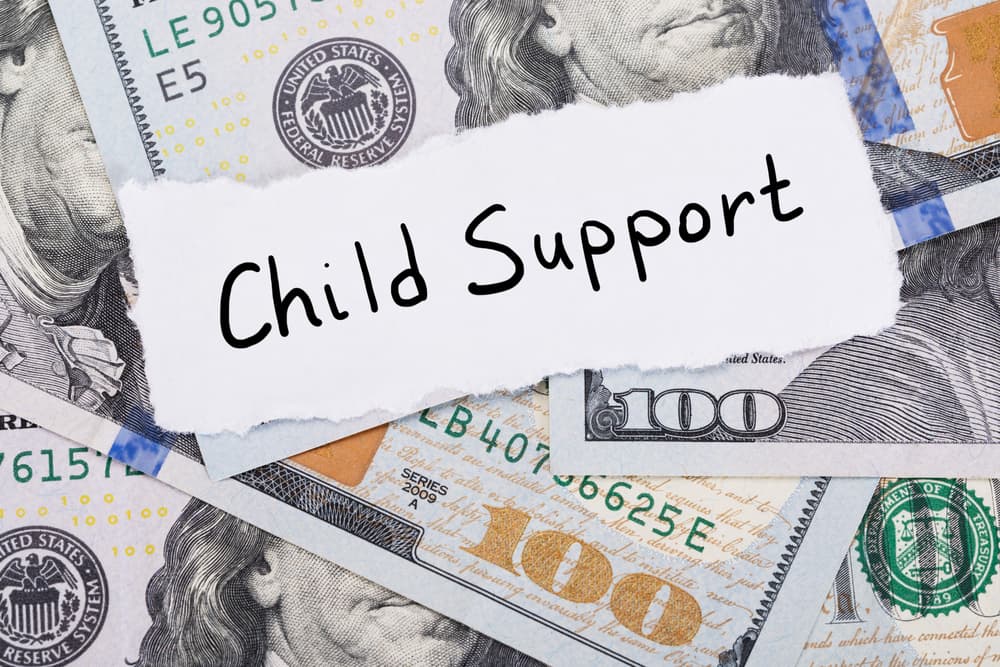
There is a lot of debate about whether disability benefits from the Department of Veteran Affairs (VA) are subject to be garnished for child support.
Under normal circumstances, VA disability benefits may not be garnished for child support. However, some exceptions apply to this rule. If you’re not sure about where you stand, contact an experienced VA disability lawyer to learn more.
There are certain situations where VA disability benefits can be garnished for child support. These scenarios are:
Your disability income can be garnished for child support if you elected to receive disability instead of your military retirement benefits. Under federal law, military retirement benefits are subject to garnishment.
If you receive VA disability benefits instead, it’s also subject to garnishment, but an exception applies to this rule.
Garnishments can only come out of your military retirement pay portion if:
If your disability rating is 50% or lower, the VA will check to see if you have more sources of income before making a decision.
Usually, if a Veteran’s disability benefits are their only source of income, they won’t be garnished for:
In addition, the VA will also determine whether a Veteran has special needs that warrant additional income sources.
The U.S. Supreme Court held in Rose v. Rose, 481 U.S. 619 (1987) that state courts can garnish child support payments from a Veteran’s disability benefits. This is even true if the benefits are their only source of income.
This legal standard assumed that the VA intended disability benefits to provide financial support for a Veteran’s family since the Veteran cannot work. As a result, disability benefits can be garnished to support dependent children.
In fact, alimony payments can also be garnished from a Veteran’s disability benefits. If you’re 100% disabled, this standard may not apply to you.
There are some circumstances where your disability benefits can’t be garnished by state or federal courts, for example:
State courts can only garnish your disability to pay state-ordered spousal support when certain conditions are met.
Here are the criteria the court would use to deny spousal support deductions:
Disability compensation benefits are not considered a marital asset to be divided by a court. After a divorce, disability income can’t be split up between spouses.
Nonetheless, a court can order a Veteran to pay their former spouse alimony or spousal support from disability benefits.
Apportionment happens when the former spouse of a Veteran requests that disability payments be divided among everyone who is entitled to compensation. This can happen during divorce proceedings.
The former spouse must apply directly to the VA for apportionment. They can win apportionment for themselves and their dependent children under a few circumstances.
First, the VA will require the former spouse and Veteran to submit their financial statements. They must ensure that the deductions will not cause financial hardship to the Veteran.
If the VA finds no financial hardship, it will automatically send apportionment checks to the former spouse. The amount the former spouse receives will be deduced from the Veteran’s earnings. Technically, no garnishment is happening here.
The person filing for apportionment cannot cause financial hardship to the Veteran by reducing their disability benefits. In some cases, the recipient could forfeit these payments and even be forced to pay the money back.
For example, if the former spouse gets remarried and continues to receive alimony payments, they must notify the VA. The Veteran can file for a hardship reduction at any time if they are unable to meet their basic financial needs.
If you receive your disability benefits on top of your military retirement income, you may have nothing to worry about. If you go through a divorce, your disability would likely be exempt from garnishment if you’re forced to pay child support.
Also, if you don’t receive much money for disability, the VA may decide not to garnish your benefits if you don’t also receive retirement income.
Ultimately, your disability benefits may change after a divorce because your disability rating usually depends on whether you have a spouse or other dependents. If you no longer have a spouse, your payments will decrease since you have fewer people to financially support in your home.
The answer to this question can vary. Having a 100% disability rating doesn’t always mean the Veteran cannot work. If they can still work, the court may decide to garnish their disability payments under special circumstances.
However, if a Veteran is completely disabled, the court will likely avoid garnishing their disability income and causing a Veteran financial hardship.
As you can see, there are a lot of nuances concerning the garnishment of VA disability benefits for child support. If you want to maximize your VA disability benefits, you need to know where you stand with possible child support payments.
While we don’t handle child support cases, we can help educate you about to receive the highest benefits possible for your disability. Give us a call today at (888) 883-2483 to speak to a member of our team.
Our monthly newsletter features about important and up-to-date veterans' law news, keeping you informed about the changes that matter.